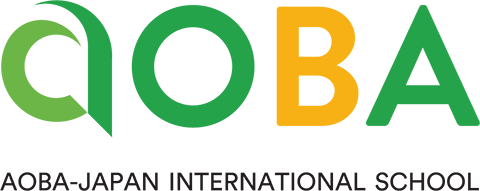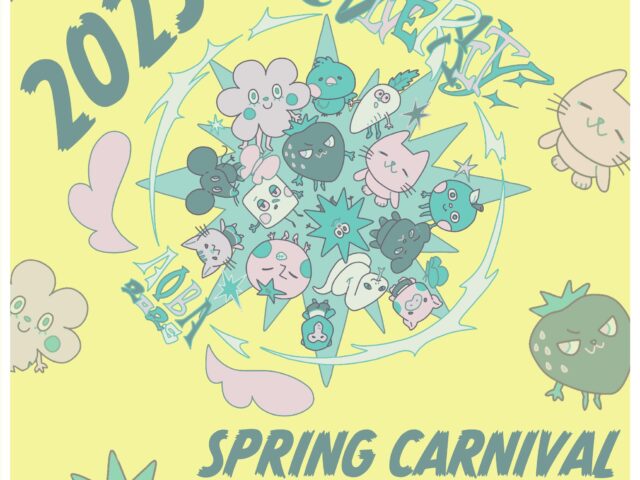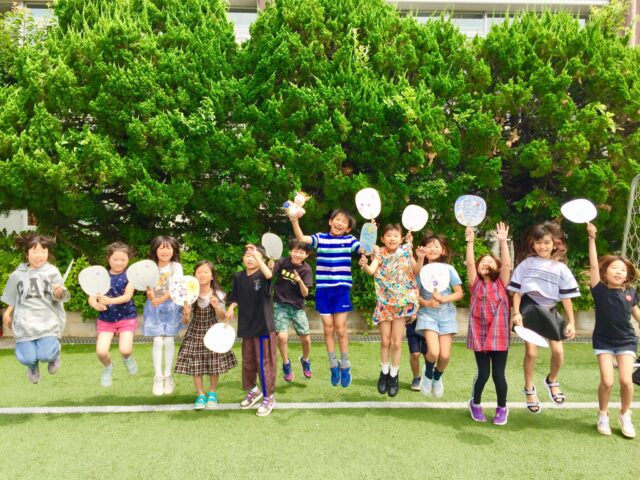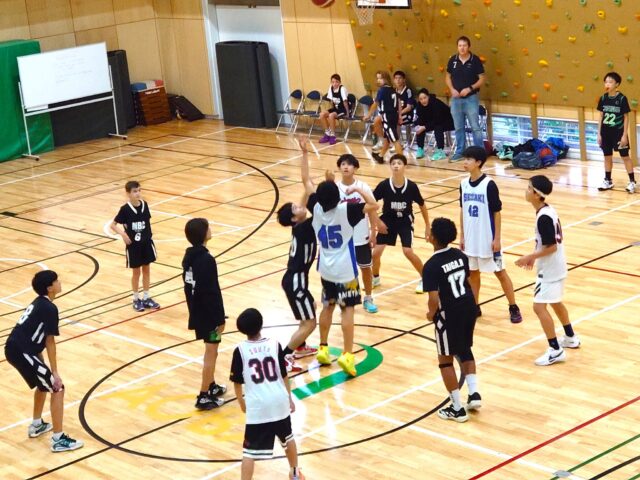Aoba School Profile
Aoba-Japan International School History
Aoba International School, founded in 1976, earned accreditation with CIS and NEASC in 1997. In 1998 it merged with Japan International School. In the autumn of 2011, Aoba extended its secondary section to include Grades 9 to 12. In 2013, Business Breakthrough Pty,. Ltd,. (BBT) acquired Aoba with a vision for life long learning from kindergarten to post-graduate university and beyond. Since Aoba became an IB World school in 2015, consisting of a Primary section (PYP K2 to grade 5) and a Secondary section with MYP (Grades 6 to 10) and Senior School (Grades 11 to 12). Aoba has now developed the Global Leadership Diploma to enable our senior learners to follow their passion.
More details about our history ▶
Guiding Statements
Mission
A spirit of community shapes the Aoba experience. We are dedicated to developing globally-minded, compassionate, collaborative students who are inspired to learn, take risks and lead change in the world.
Vision
We will continue to be a leading international school by providing students with a rigorous international education in a safe and supportive environment. We will ensure learners’ needs are supported, their perspectives sought and respected, and their unique qualities valued and nurtured. Through a continued emphasis on educational excellence and innovation, each individual student will be provided with relevant resources and opportunities that will enable them to secure the best of what the future holds for them.
Aoba Core Values
- Global Leaders
- Entrepreneurs and Innovators
- Effective Communicators
- Wise Risk-Takers
- Effective Problem Solvers
More details about our Core Values ▶
The Aoba Student Population
Aoba student population is made up from a diversity of countries worldwide. This includes, but not limited to, Japan, Australia, Britain, Canada, Chinese, Korea, Vietnam, Malaysia, New Zealand, Mexico, Oman, Peru, Sweden, United Arab Emirates and United States of America.
Safeguarding Student Well-Being
The decisions we make about student learning begin with consideration for the learners’ well-being. Learner well-being consists of a healthy state of mind and body. It is characterised by positive interpersonal interactions and connections. The United Nations Convention on the Rights of the Child (Articles 19 and 34), and the International Taskforce on Child Protection (ITFC) inform our policy on learner well-being and child protection.
Learning at Aoba
Aoba Learning Climate Principles
Our ‘learning climate’ embodies our school community’s attitude towards learning and is defined by our culture. We measure the quality of our school climate by the level of meaningful and empowering learning experiences that are beneficial to everyone’s well-being. A warm, comfortable and supportive learning climate enables us to make a positive difference in our lives and the lives of others. A focus on student well-being is at the heart of creating a positive and supportive learning climate. Our attitude towards child safety and well-being; building capability; sustaining a supportive well-being environment; intercultural learning; learner agency; and collaborative and inquiry learning influences and defines the quality of the learning climate at Aoba.
Intercultural Learning
Culture is defined in terms of the patterns of behaviour displayed by groups of people in a given place and time. At Aoba, intercultural learning plays an important part in developing Global Leaders. Adopting a developmental approach, our students advance through stages of learning that begins with developing self-awareness as a basis for understanding how to connect with others. Our students are encouraged to be open-minded, reflective and caring when engaging with new perspectives and different cultures.
Learning for Global Leadership Capability
To be an effective ‘Global Leader,’ all our learners need to be competent and capable. Competencies are knowledge and skills that a learner acquires. Capability, when developed in teams, is about the ability to collaboratively apply the knowledge and skills to solve problems and lead change in unfamiliar contexts. Developing capability self-confidence and efficacy learner involvement in decisions about their learning learn to develop agency and increase motivation.
Three Learning Pillars
Learner Agency
Agency at Aoba refers to the power each student has to direct and take responsibility for their learning. The concepts of student autonomy, voice and power are intrinsically linked to defining the level of Agency our students experience while learning. Agency enables our students to direct and take responsibility for their learning. A high level of Agency is seen when students demonstrate interdependent and self-regulating behaviours related to their learning.
Collaborative Learning
Collaborative learning at our school occurs through structured team learning activities. In team learning students and adults come together to achieve a shared goal by combining their expertise, experience and ability. Learning in teams that collaborate lead to improved individual academic achievement, greater capability to solve problems, increase efficacy and improved confidence.
Inquiry Learning
Inquiry learning is a constructivist approach to acquiring, constructing and applying knowledge. At Aoba, inquiry learning follows a four-step critical thinking process that enables the students to develop the relevant research skills that inform problem-solving. In doing so our students develop capability, confidence and efficacy to create new understandings and concepts that can be applied in unfamiliar contexts.
International Education in Japan
While the medium of learning and teaching is English, the learning opportunities at Aoba are influenced in unique ways, both formally and informally, by the Japanese socio-cultural environment of which the school is a part.
Accreditation
Aoba is accredited by the Council of International School (CIS) and the New England Association of Schools and Colleges (NEASC) and is authorised to offer a High School Diploma. The International Baccalaureate Organization authorised our school to offer the Primary Years, Middle Years and Diploma Programmes. The school is a member of the Japan Council of International Schools (JCIS) and the East Asian Regional Council of Schools (EARCOS).
Aoba-Japan International School upholds the CIS Code of Ethics, which is a set of shared moral principles guiding our conduct and professional practice.
We expect all members of our school community to:
- Fulfill the promises stated in our guiding statements, policies, contracts and promotional materials.
- Strive for excellence.
- Nurture a culture of care in which the education, safety and well-being of students and others are paramount.
- Comply with applicable laws and regulations.
- Respect the dignity and equality of all individuals, groups and cultures.
- Promote global citizenship.
Curriculum
Aoba is an IB World School offering three International Baccalaureate (IB) Programmes: 1) Primary Years Programme (PYP), 2) Middle Years Programme (MYP) and 3) Diploma Programme (DP). In the senior years, along with the DP, we offer ‘Global Leadership Diploma’.
More details about our Curriculum▶
University Acceptance
Since 2011 our students have been accepted to various university all over the world.
Continue on here to see the list of universities ▶



